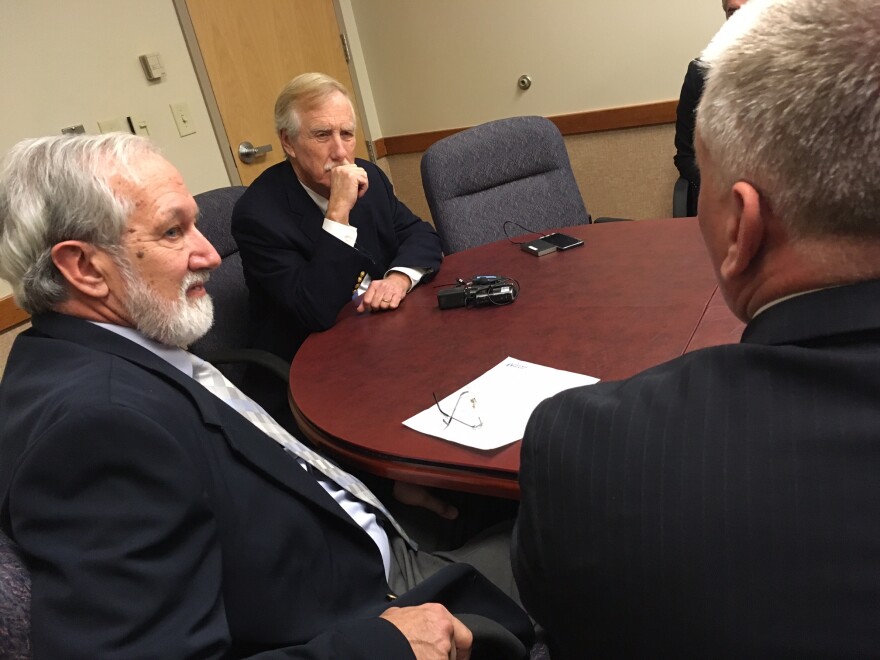Hospitals, especially rural ones, are bracing for a possible repeal of the Affordable Care Act. If the 80,000 Mainers who have insurance through the marketplace lose coverage, hospitals say they will have to absorb more costs from patients who can’t afford care.
At Bridgton Hospital on Friday, administrators and staff met with independent U.S. Sen. Angus King to tell him that a repeal of the federal health care law, without a viable replacement, would be catastrophic for quality care and local economies.
When it comes to rural hospitals, Bridgton is one of the best. It was recently named among the top 20 critical access hospitals across the U.S. by the National Rural Health Association.
But President and CEO David Frum says the hospital will likely have to reduce services if the ACA is repealed without a viable replacement.
“Quite simply put, repealing without an option behind it has devastating effects,” he says, “not only in terms of the care for our community, but for this organization, in terms of its livelihood and its ability to continue to provide services as it has for the last 100 years.”
Frum says about 8 percent of the hospital’s patients have insurance through the Affordable Care Act’s marketplace. If those patients lose that insurance, the hospital won’t be able to absorb the cost of providing free care without reducing or cutting services.
Along with that, he says, will come layoffs for some of the hospital’s 300 employees.
“In our community, Bridgton is the largest employer, and it would have a certain impact on this community as well,” he says.
Statewide, hospitals are already operating at a loss or skating on thin ice, says Jeff Austin of the Maine Hospital Association. He says the average operating margin is 1 percent.
“The number of hospitals who are actually in the red, who are below zero, is around 15 to 20. So a third or more for the past several years,” he says.
And if Mainers who receive subsidized marketplace insurance coverage lose it, Austin estimates it will cost hospitals $200 million a year.
“That’s not even in the ballpark of something absorbable,” he says.
Beyond insurance coverage, the Affordable Care Act also extends a drug discount program to rural hospitals. If that goes away, Austin says, that will cost an additional $15 million a year for Maine’s rural hospitals.
“This is a serious, secondary result from repeal that people aren’t really talking about,” he says.
King says he’s concerned about the health and economic implications of repealing the ACA.
“In many rural towns in Maine, the hospital is the single largest employer. You take away 5, 10, 12 percent of their revenues, they’re going to have to shrink. The math just doesn’t work otherwise. And I don’t think the folks in Washington who are so hellbent for repeal aren’t really focusing on what’s going to happen,” he says.
King says he wants to improve the Affordable Care Act rather than replace it. Frum says the ACA isn’t perfect, but its benefits far outweigh the negatives. Keep people covered, he says, but protect patients against high deductibles.
“The average consumer, if they have a high-deductible plan of $5,000 or $10,000. Actually, most folks have available cash of about $2,000. So that ends up being bad debt. When you have a high-deductible plan, you can’t pay the high deductible, that ends up being a burden on the hospital,” he says.
Austin says he wants to see Congress hold off on striking the ACA until new language is ready to go and be adopted. Any uncertainty, even temporary, he says, is harmful.
Late Friday afternoon Congress joined the Senate in taking the fist step to repeal the health care law.



